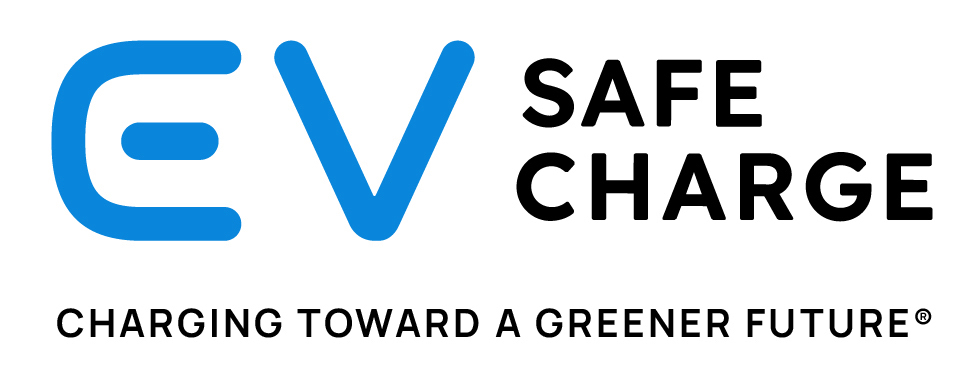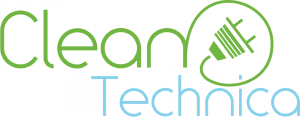EV, Battery & Charging News: Microchip, Allison Transmissions, American Axle, Altis, Li-Cycle, Juice, EV Safe & ONE
In electric vehicle, battery and charging news are Microchip, Allison Transmissions, American Axle, Altis, Li-Cycle, Juice, EV Safe and Our Next Energy.
Our Next Energy (ONE), the Michigan-based energy storage company, has signed an agreement with BMW Group to incorporate ONE’s Gemini™ Dual-Chemistry battery technology into the BMW iX all-electric Sports Activity Vehicle. ONE’s unique long-range Gemini technology reduces lithium use by 20% while reducing graphite use by 60% and minimizing the use of nickel and cobalt. In doing so, ONE is creating more sustainable energy storage technology that can significantly reduce environmental impact.
The prototype vehicle is expected to be completed by the end of the year.
EV Safe Charge’s ZiGGY Mobile Charging
EV Safe Charge, a leading provider of flexible electric vehicle (EV) charging technology, unveiled ZiGGY™, its mobile EV charging robot. ZiGGY will bring EV charging to parking facilities, shopping and entertainment centers, hotels, fleet operators and property owners, providing cost-effective charging, overcoming the limitations of stationary EV chargers without the need for costly electrical infrastructure. In addition, ZiGGY’s digital ad server can generate advertising revenue for the facility and display customized information.
ZiGGY will be summoned to an EV via mobile app or in-vehicle infotainment system and will arrive at the vehicle’s parking space, ready to reserve the spot for plug-in charging. ZiGGY is able to return to its home base for recharging from grid, battery or solar energy, or a combination of these. ZiGGY can also be chosen for offsite charging if no infrastructure is available or desired onsite. ZiGGY is equipped with two extra-large screens that serve as informational kiosks or interactive advertising displays – an additional income generator for parking facility operators. EV Safe Charge will lease ZiGGY to deliver “Charging as a Service” to facilities and provide ongoing technical support and maintenance. Facility operators will have the option to direct vehicle owners to the app for payment or to provide charging as an amenity. Parking operators will no longer need to block spaces for permanent EV chargers because ZiGGY can serve all parking spaces.
EV Safe Charge wanted an exciting, modern, welcoming design for ZiGGY and engaged award-winning industrial design studio, Box Clever. Using their expertise, the Box Clever team worked on the design of ZiGGY’s exterior, while also creating a holistic design experience including the UX and brand identity design for ZiGGY.
Box Clever’s Founder and Creative Director, Bret Recor said, “Through our work on the design and branding of ZiGGY, we are delighted to be contributing to a transformative innovation that will help advance a clean energy future. We are excited to continue our design work with ZiGGY on this shared mission.”
EV Safe Charge is poised to be the first company to bring to market a mobile EV charging solution featuring communication and digital, interactive advertising. ZiGGY is currently scheduled to enter production in 2023. The company is taking reservations for ZiGGY .
Sites already on board for using ZiGGY include Holiday Inn Express in Redwood City, CA, Opera Plaza in San Francisco and The William Vale, a luxury hotel in Brooklyn’s Williamsburg neighborhood. “We delight in finding opportunities to introduce our guests and neighbors to next-level amenities and technology,” said David Lemmond, general manager of The William Vale. “ZiGGY is perfect for the growing demand for easier charging solutions. ZiGGY will introduce our entire community to just how convenient charging your EV really can be without substantial infrastructure updates.”
EV Safe Charge has been funded through angel investors, including Sand Hill Angels, one of the largest early stage investing groups in the U.S. Drue Freeman, Sand Hill Angels Board Member, said “Sand Hill Angels makes seed-stage investments in disruptive, scalable technologies that we believe can become highly profitable businesses.”
Juice Tech Forms Juice Power
Juice Technology AG, producer of electric charging stations and software and the market leader in portable chargers for electric cars, announced the founding of Juice Power AG. Demonstrating a clear commitment to sustainable electromobility, Juice Technology formed Juice Power as a result of a merger with Eros Electric, an independent association that has been supplying clean energy, around the clock, to power the electric vehicles.
Eros Electric was founded in 2016 by Juice Technology AG Founder and CEO Christoph Erni and Jörg Huwyler, Head of Hydropower and Biomass at Axpo. It features sub-participations in two classic hydroelectric power stations, Frisal and Eglisau. Now, as it merges with Juice Technology to form Juice Power, it is expanding access to ecological energy generation from renewable sources which generate power at the same time the energy is drawn during the charging process.
“The demand from drivers of electric cars for energy from demonstrably green production is increasing unabatedly,” said Erni. “If we want to charge our cars using green energy in real time, we must make use of green sources of energy which can be regulated, such as hydropower.”
According to Erni, incorporating energy generation is only the next logical step in developing electromobility. “We always say: ‘Sustainable mobility starts with sustainable charging infrastructure.’ But this is only the beginning. This is why we are now going one step further. The electric car, the charging station and the energy to charge the car’s battery must be viewed as inseparable components of an overall concept. Electromobility as a whole will only be more ecological once everything is generated and powered with as few emissions as possible, from start to finish.”
Li-Cycle Reports Revs
Li-Cycle Holdings Corp. (NYSE: LICY) (“Li-Cycle” or the “Company”), an industry leader in lithium-ion battery resource recovery and the leading lithium-ion battery recycler in North America, announced financial results for its second quarter ended April 30, 2022. Revenues increased to $8.7 million from $0.3 million in the second quarter of fiscal year 2021.
Potomac Edison, a subsidiary of FirstEnergy Corp. (NYSE: FE), is now offering a limited number of utility-owned electric vehicle charging stations with no-cost for installation at multifamily properties in its Maryland service area. The company received approval earlier this year from the Maryland Public Service Commission (PSC) to move forward with the new offering as part of EV Driven, the company’s five-year PSC-approved pilot program designed to benefit the state’s environment by reducing auto emissions and supporting Maryland’s goal to reach 300,000 zero-emission vehicles on the road by 2025./
Altis’ Mou with INDe EV
Atlis Motor Vehicles (ATLIS), a start-up mobility technology company developing an electric work truck and the batteries and motors to drive it, announced that it has signed a memorandum of understanding with INDe EV Limited, an East Sussex, U.K.-based engineering company developing a new British designed and built electric van. ATLIS will develop 500 30 KWh battery packs to be delivered in December 2023 for plug-and-play integration into INDe EV’s new commercial vans.
ATLIS is developing its own battery cells and packs to power 300-, 400- and 500-mile range electric vehicles. These batteries will be the first in the industry to charge in less than15 minutes.
“ATLIS technological breakthroughs in battery cell efficiency and battery management systems stand out and its batteries are the logical choice as we develop this new commercial van and create more local jobs,” said Tony Hayes, managing director, INDe EV.
ATLIS began the development of the AMV battery cell at its headquarters in Mesa, Arizona, in June 2021. By building battery cells in-house, ATLIS is developing its own battery supply chain, working to provide ultra-fast charging batteries to companies that are currently struggling to secure their own allotment from top battery suppliers.
American Axle Powers Mercedes-AMG GT 63 S E
American Axle & Manufacturing’s (NYSE: AXL) electric driveline technology powers AMG’s first plug-in hybrid electric (PHEV) model, the Mercedes-AMG GT 63 S E PERFORMANCE. AAM supplies the performance car’s rear drive unit, which was recently named a 2022 Automotive News PACE™ Award finalist.
“AAM’s Electric Drive Unit provides superior vehicle performance in a compact, power-dense design,” said David C. Dauch, AAM Chairman and Chief Executive Officer. “This contract to supply Mercedes-AMG’s newest hybrid performance car showcases AAM’s industry-leading, award-winning electric drive technology. It continues our work to be the supplier of choice for OEMs as they expand their electric propulsion and e-mobility offerings.”
The electric drive unit, located on the rear axle, is the first volume production application combining a mechanical all-wheel drive system with a 2-speed electric drive module. This P3 system layout, with the electric motor on the rear axle, optimizes the weight distribution and increases the total output torque, compared to a transmission mounted electric motor (P2 hybrid).
Innovative design features include an electromechanical actuated two-speed gearbox and electromechanical controlled limited slip differential (eLSD) providing state of the art shifting times and traction.
The performance car can generate 620kW/843hp at peak levels, clock a 0-62 mph time of 2.9 seconds, and achieve a top speed of 316 kph (196mph). AAM’s e-Drive provides power/torque output of 150 kW/204 hp, adds performance in hybrid drive and helps enable zero emissions.
With the launch of the Mercedes-AMG GT 63 S E PERFORMANCE, AAM further continues its transformation into a leading supplier of electric drive technology.
The PACE Award recognizes automotive suppliers for superior innovation, technological advancement and business performance and are accepted around the world as the industry benchmark for innovation. Awards will be announced in September 2022.
Allison Trans Partners with GILLIG & Cummins
Allison Transmission is pleased to announce that in partnership with GILLIG and Cummins, the first buses equipped with its Allison eGen FlexTM electric hybrid propulsion system have arrived at the Indianapolis Public Transportation Corporation (IndyGo).
“IndyGo’s continued collaboration with Allison represents our joint mission and commitment to reduce our carbon footprint in the Indianapolis community”
Tweet this
The eGen Flex is the next generation of Allison’s proven H 40 EPTM electric hybrid propulsion system, which has been operating in select IndyGo buses since 2004. In addition to the benefits provided by the H 40 EP, such as improving fuel consumption by up to 25% versus a conventional diesel bus, the eGen Flex provides revolutionary capabilities which include full electrification range.
“IndyGo’s continued collaboration with Allison represents our joint mission and commitment to reduce our carbon footprint in the Indianapolis community,” said Inez Evans, IndyGo President and CEO. “The delivery of the GILLIG buses equipped with the eGen Flex technology represents the next step in our efforts to reduce our dependence on fossil fuels, enhance quality of life for residents and do our part to protect the environment.”
The eGen Flex, which is paired with the Cummins B6.7 engine in GILLIG buses, is capable of traveling in electric-only mode for up to 10 consecutive miles or 50 minutes before converting back to hybrid propulsion. This electric-only mode can be utilized multiple times per route and per day. The eGen Flex can operate up to 50% of the time in engine off mode while still powering auxiliary systems like air conditioning and heat at optimal efficiency. The system’s electric-only mode is activated through geofencing technology and eliminates engine emissions and noise while loading and unloading passengers in dense pedestrian areas, zero-emission zones and at Indianapolis’ public transportation hub, the Julia M. Carson Transit Center.
Microchip Intros LX34070 IC
Developers of motor control systems are rapidly replacing Hall Effect position sensors and older magnetic resolver solutions with inductive alternatives that eliminate expensive magnets and other heavy transformer-based structures so they can be integrated onto simple, compact printed circuit boards (PCBs). Extending the world’s broadest line of inductive position sensors into the EV motor control market, Microchip Technology Inc. announces the LX34070 IC that has been purpose-built for EV motor control applications. It includes differential outputs, fast sample rates and features that make it functional-safety-ready for ISO 26262 compliance in the Automotive Safety Integrity Level–C (ASIL–C) classification.
“The LX34070 inductive position sensor enables lighter, smaller, more reliable motor control solutions that meet stringent safety requirements, reduce overall system costs, and can operate seamlessly and precisely in the noisy environment of an automobile’s DC motors, high currents and solenoids,” said Fanie Duvenhage, vice president of Microchip’s mixed signal and linear analog business unit. “Designers can use the LX34070 to further streamline EV motor control designs by pairing it with other functional-safety-ready Microchip devices including our 8-bit AVR® and PIC® microcontrollers, our 32-bit microcontrollers, and our dsPIC® digital signal controllers.”
The LX34070 inductive position sensor solution offers numerous advantages compared to magnetic resolvers and Linear Voltage Differential Transducers (LVDTs), at a fraction of the cost. By using PCB traces rather than transformer-based magnetic windings and coil structures, the LX34070 device has negligible size and mass compared to alternatives that weigh as much as a pound. Accuracy is improved since the LX34070 does not depend on magnet strength, and the device improves robustness by actively rejecting stray magnetic fields. These and other features give designers greater flexibility over where they can place the thin, lightweight PCB-based LX34070 solution in their EV motor control designs.
PCB-based inductive position sensors use a primary coil to generate an AC magnetic field that couples with two secondary coils. A small metal target object disturbs the magnetic field so that each secondary coil receives a different voltage whose ratio is used to calculate absolute position. Using these techniques, Microchip introduced its first high-volume inductive sensor for automotive and industrial applications over a decade ago and has many programs in volume production. The LX34070 now brings the same proven PCB materials, approaches and simplified, low-cost packaging to EV motor control and other applications that need its high-speed and low-latency benefits.













